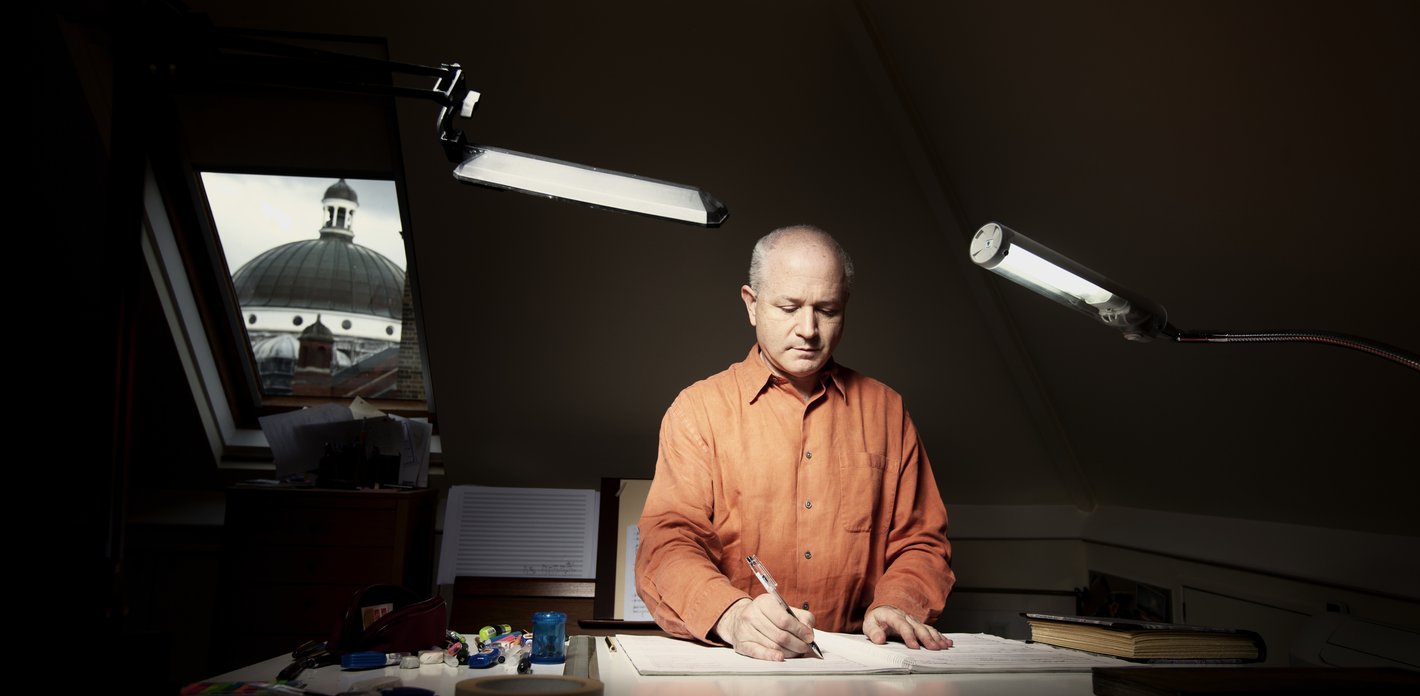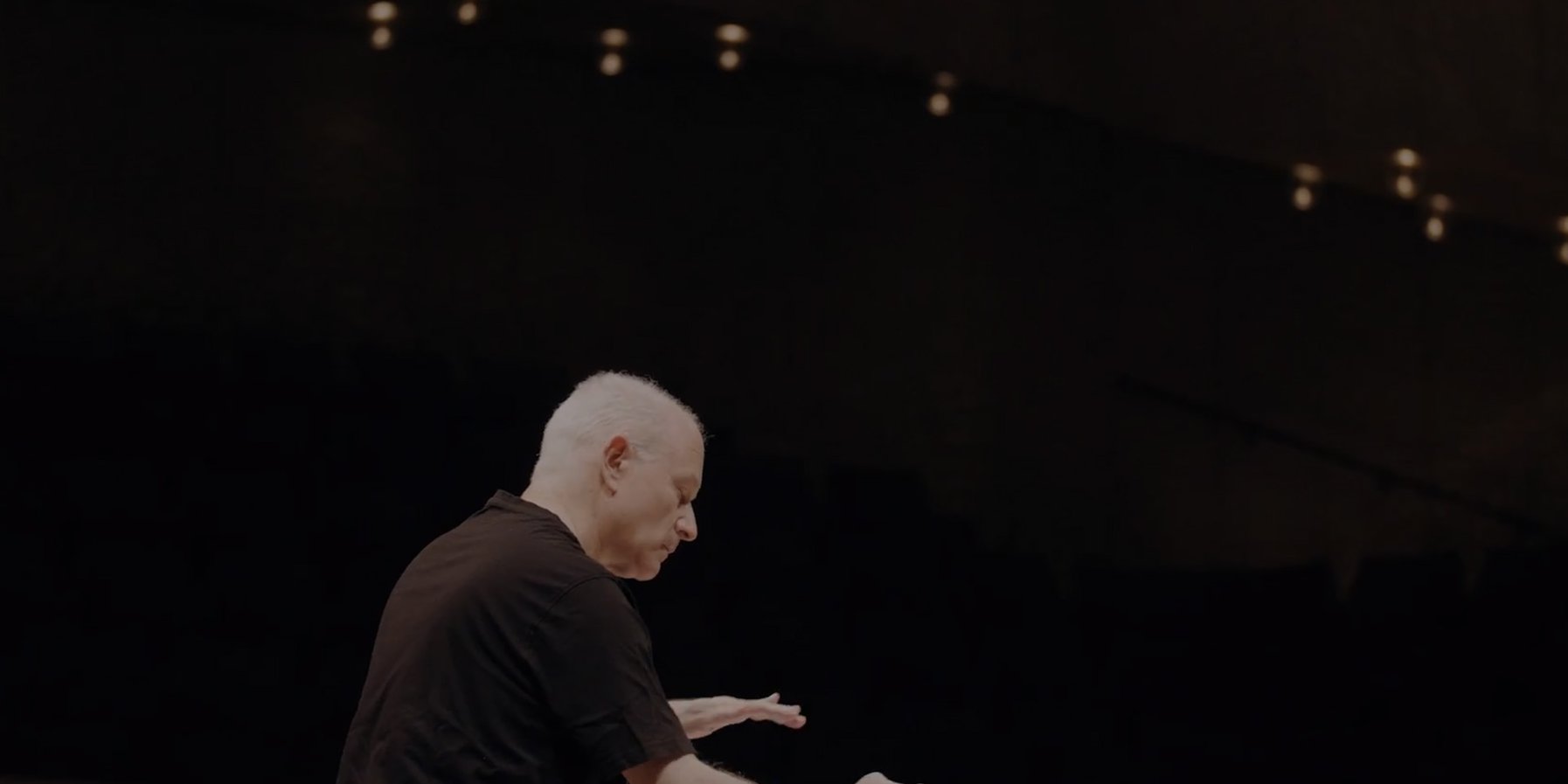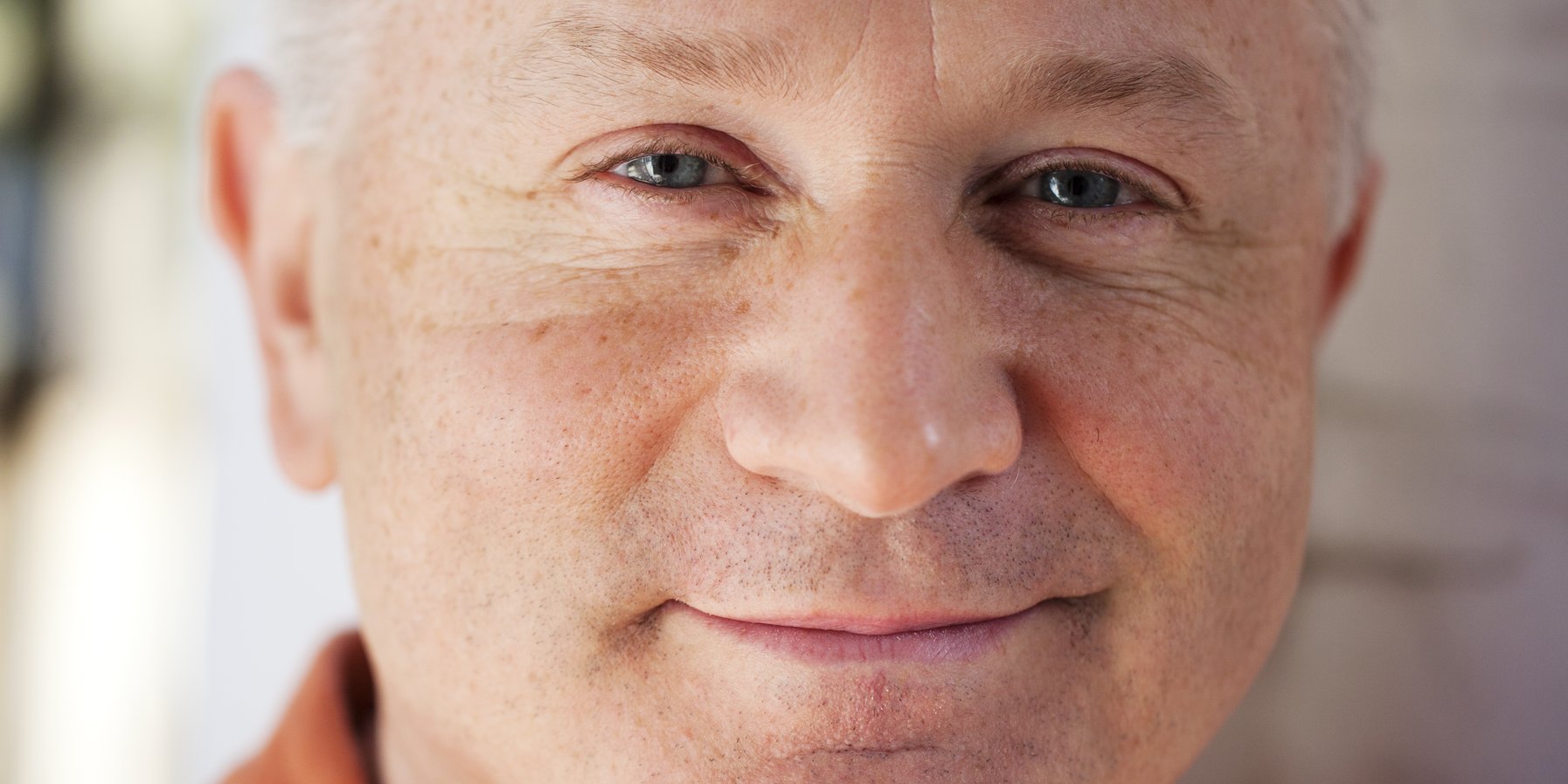Wherever his music is performed, the critics refer to its iridescent colours, to delicately mixed cocktails of sound with a tremendous suggestive power. Sir George Benjamin, born in London in 1960, is one of today's most important composers. In the season 2018/2019 he was Artist in Residence at the Elbphilharmonie.
A Child Prodigy
His remarkable talent emerged at an early age: he was already writing one score after another at the age of seven, and when he was just 16, the great Olivier Messiaen took him under his wing as his youngest and last pupil. »George was my favourite pupil«, the French composer, who died in 1992, once recalled. »He has the kind of talent that was attributed to the young Mozart.« Can there be any greater compliment?
»Storms really inspire me, likewise nature and light.«
George Benjamin
Four years later, Benjamin's first orchestral work, »Ringed by the Flat Horizon«, was enthusiastically received at the famous London Proms: he was the youngest composer to be performed at this traditional summer concert series. Solo and chamber works followed, such as »A Mind of Winter« and »At First Light«, which were praised for their elaborate instrumentation and complexity, achieved without any loss of structure, which remained crystal-clear. Despite their individuality, Benjamin's compositions betray various influences, especially the French tradition: Impressionist composers like Debussy and Ravel, likewise the colourful, iridescent music of Messiaen, have left as much of a mark in his work as Indian music, which he encountered on his travels, and the dense, closely-woven style of Anton Webern.
»I want to make a statement with my music, and I want to make it as clearly and concisely as possible.«
Benjamin once summed up his musical ambitions as follows: »I want to make a statement with my music, and I want to make it as clearly and concisely as possible. I want to transmit the maximum possible information in layers, one superimposed upon another – but transparently enough for everything to remain audible. And all these layers notwithstanding, I want the composition to develop.«

In addition, Benjamin constructs each composition according to a different principle: »I always start with an architectural model in mind. Sometimes it's the dynamics that interests me, sometimes the rhythm, or the colouring. Only then is there space for inspiration – for a mood, a poem, a picture, a special instrument. Storms really inspire me, likewise nature and light.«
»I sometimes wondered whether I would be able to write not only more fluently but at all.«
It's pretty time-consuming to go about composing like this. It sometimes took Benjamin years to write 15 or 20 minutes of music, which he wrote with meticulous precision, constantly polishing what he had already composed. »You're free as a composer today. You write one note, and there's not only 12 other notes (or more if you write in microtones) for the next note, but you think of different registers and timbres. The choices multiply to the billions within a few notes and, obviously, that's impossible to work within. I sometimes wondered whether I would be able to write not only more fluently but at all.«
The Biggest Hurdle
Benjamin's scruples turned out to be unwarranted. In his mid-forties, he cleared what he described as the biggest hurdle of all and wrote his first opera, »Into the Little Hill«. For a long time, he had been reluctant to tackle music for the stage, for the simple reason that storytelling, which had already grabbed his interest as a child, had long since gone out of fashion in contemporary opera.
Benjamin couldn't relate to the prevailing taste: »An opera that has no story doesn't touch me. And I didn't want to copy the naturalism of the cinema either. So I has to find a way to tell a story that respects the artificial nature of opera, but still moves the people in the audience.«
An Ideal Partner
In 2005, Benjamin found the ideal partner for his longstanding vision in the playwright Martin Crimp. Crimp's direct language – »quite hard and extremely economical and fantastical as well« – worked like a catalyst on the composer: »He is the collaborator from heaven…he cracked me open. I wrote my first chamber opera ›Into the little Hill‹ in six months.«

Then in 2012, »Written on Skin«, Benjamin's first large-scale opera set for five voices and orchestra, saw the light of day. This drama about sensuality, submission and self-liberation was a resounding success, with the premiere at the Festival d’Aix-en-Provence being fêted as a reference work for the 21st century. And only six years later, »Written on Skin« can look back on a good 100 performances in London and Amsterdam, New York and Moscow, Toronto and Stockholm and at the Elbphilharmonie – a sensational success for a contemporary opera.
The first performance of Sir George Benjamin's latest opera, »Lessons in Love and Violence«, was given this spring at the Royal Opera House (Covent Garden) in London, and the new work could be seen at the Hamburg State Opera in April 2019.
text: Laura Etspüler







